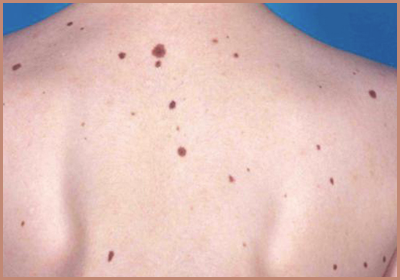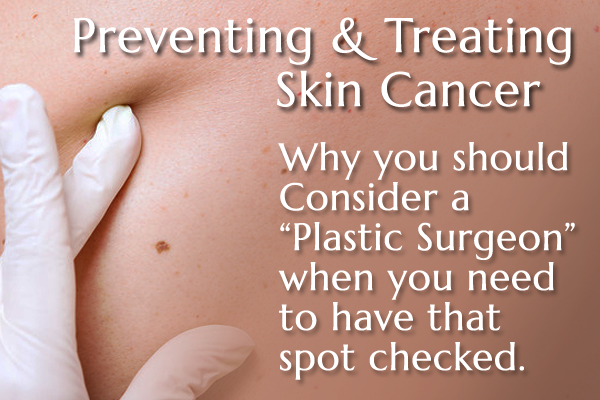What You Need To Know About Skin Cancer
Summer is almost here and it’s time to think about protecting your largest organ; Your Skin. Ultraviolet irradiation from the sun is very damaging to our skin and unfortunately, the damage it causes to your skin accumulates year after year after year. Before we know it, we begin to develop photo aging and unfortunately, many of us develop skin cancers, (5.4 million cases a year in the U.S.). Basal cell carcinoma, (BCC) is the most common type of skin cancer followed by squamous cell carcinoma and melanomas. (below)
Non-Melanomas

Basal Cell Carcinoma

Squamous Cell Carcinoma
Each year in the U.S. over 5.4 million cases of non-melanoma skin cancer are treated in more than 3.3 million people. Over the past three decades, more people have had skin cancer than all other cancers combined. One in five Americans will develop skin cancer in the course of a lifetime. Between 40 and 50 percent of Americans who live to age 65 will have either basal cell carcinoma or squamous cell carcinoma at least once.
Dr Lewis Obi is among the most experienced plastic surgeons in our area with. And like many of his plastic surgery colleagues, he is fully trained and very experienced in removing basal cell carcinoma and squamous cell carcinoma lesions from any part of the body. However, as a plastic surgeon with an added focus on the cosmetic aspects of any procedure he performs, Dr. Obi is not only able to effectively remove these lesions his surgical skills as a cosmetic surgeon allow him to do so without distortion or noticeable scarring in the vast majority of skin cancer patients.
Almost all patients can have lesions removed at Dr. Obi’s state licensed Samuel Wells SurgiCenter at his practice in Jacksonville, with safe and effective anesthesia. The procedure is usually performed in a short visit and requires minimal down time. This minor surgical procedure will completely cure 99% of these non-melanoma cancers.
Dr. Obi’s expert insurance staff also assures that the patient’s health care insurance is used to cover the majority of the cost of this procedure.
Melanomas

Melanomas
Dr Obi has been singled out by patients on a national level as one of the most astute and experienced physicians in the area of early diagnosis and detection of melanomas and pre-melanomas. The estimated 5-year survival rate for patients whose melanoma is detected early is about 98 percent in the U.S. The survival rate falls to 63 percent when the disease reaches the lymph nodes, and 17 percent when the disease metastasizes to distant organs. Thus the importance of Dr. Lewis Obi’s experience, comprehensive
melanoma screening exams and diagnostic acumen. It is not difficult to detect classical melanomas such as those pictured below.

However, quite often many patients have a familial tendency towards numerous pigmented nevi (moles) which can create a surveillance / early diagnosis challenge. To assure that patients are properly diagnosed, Dr. Lewis Obi uses specialized lighting and examination techniques and frequent surveillance for these patients.

Melanomas

Pictured above is one of literally thousands of Medicare patients Dr Lewis Obi has treated over the decades. As a licensed surgery center Medicare provider, Dr. Obi treats almost all medicare patients in his state licensed SurgiCenter located behind Memorial Hospital in Jacksonville.
Dr. Obi’s Medicare patients take particular comfort in Dr. Obi’s unsurpassed record of patient safety spanning more than 40 years without incidence. And as an approved Medicare provider, Dr. Obi’s senior patients receive an unmatched level of care and dignity.
Sun Screen
To avoid redundancy, Dr Lewis Obi recommends that you refer to the “Environmental Working Group” (EWG) recommendations for safe and effective sunscreens: http://www.ewg.org/2015sunscreen/. Dr Obi relies on this group in many areas of environmental safety including safe plastics for water bottles, etc.
Again, ultraviolet irradiation from the sun not only causes skin cancers, but also cataracts and increased incidence of internal cancers. In Florida we love an outdoor lifestyle. Many of us have to work outdoors and can not avoid the sun. Hopefully the EWG will allow you to continue with your Florida lifestyle but in a more informed and discrete manner.





